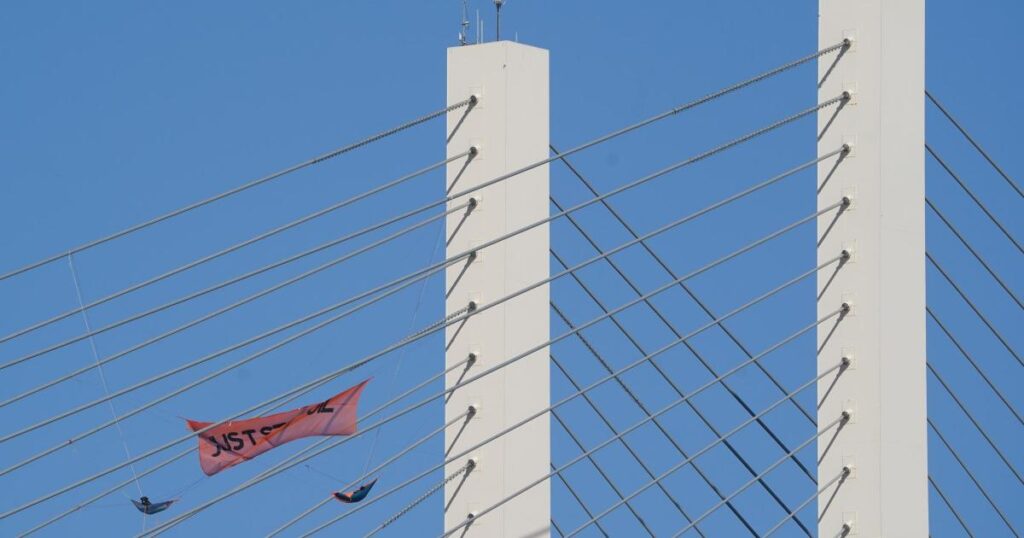Marcus Decker, a German national, had faced removal after serving a two-year, seven-month prison sentence for climbing the Queen Elizabeth II Bridge at the Dartford Crossing in October 2022 as part of a Just Stop Oil protest.
Decker and fellow protester Morgan Trowland unfurled a Just Stop Oil banner and remained on the bridge for 37 hours, causing major disruption and leading to his conviction for public nuisance.
He was released from prison in February 2024 after serving 16 months but remained in the UK due to his ongoing appeal against deportation.
After the tribunal’s decision, Tottenham resident Decker was reported in the Guardian as saying: “After an intense day of legal proceedings and an hour of harrowing cross-examination for both my partner, Holly, and me, I’m deeply relieved that we’ve won today.
“I feel this is a huge victory for the climate movement and for the laws protecting peaceful protest in this country as a whole.
“The judge’s level of confidence in unusually announcing the outcome immediately is a chink of hope in an environment of repression.”
His partner, classical pianist Holly Cullen-Davies, grew up in Crouch End and has campaigned against the Home Office’s attempt to deport him.
Ms Cullen-Davies said: “He is extraordinarily stoic, but if the sentence was bad enough, the deportation is an outrage.”
She said she was not worried about his safety during the protest because of his experience and careful planning.
Ms Cullen-Davies said: “He wanted to drop a banner telling everyone about the Government’s inaction on the climate crisis.
“I wasn’t worried about him at all, he wouldn’t do anything that put him or anyone else in danger, and he’s an adept climber.
“They had all the safety equipment, and did it at 3am, then called the police straight away.”
Her own activism focuses on using music to inspire climate action.
She said: “Anyone who wants to host a concert can invite their neighbours, it’s a way of getting communities together in small intimate spaces for the type of evening you don’t get in a concert hall.
“We encourage conversations around the climate crisis and what to do about it.
“The host chooses two environmental projects, we have an interesting debate, and at the end, the audience vote for where they want the proceeds of the evening to go.”
Decker’s deportation was opposed by a broad coalition of climate experts, religious leaders, celebrities and members of the public.
The UN special rapporteur on environmental defenders, Michel Forst, sent a ten-page letter to the government opposing deportation.
He also received backing from 22 Nobel prize laureates and 562 actors, musicians and other artists.
Among the public figures who spoke out against his removal were former cabinet minister Lord Hain, former government chief scientific adviser Sir David King, actor Juliet Stevenson and former archbishop of Canterbury Rowan Williams.
Decker’s legal team argued that such action would be disproportionate, violate his right to family life with his partner and stepchildren and further chill legitimate protest at a time of escalating climate crisis.
Ms Cullen-Davies has previously described her partner as “braver than me,” noting that while they both began with peaceful activism through music, she is unable to risk arrest because of her responsibilities as a parent.
She said he gave up his musical ambitions to focus on activism.
Ms Cullen-Davies said: “He gave up his dream of taking his music seriously because he could see what was happening to the world, and felt an urgency to use his skills to protest.”




